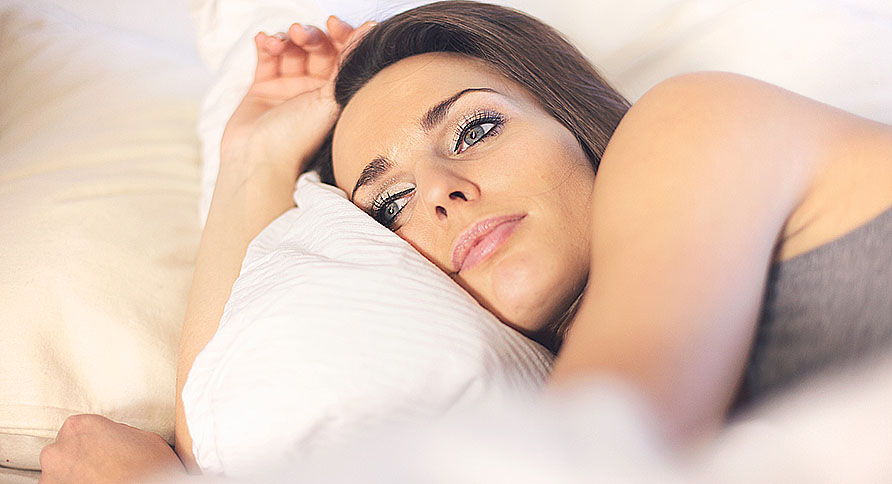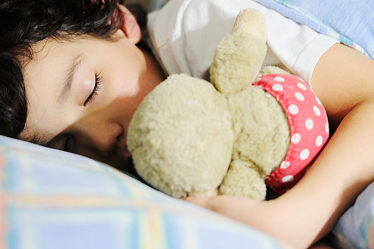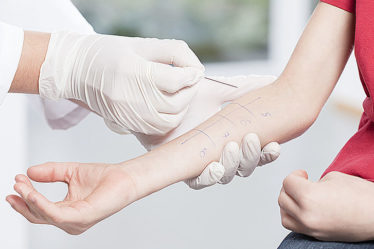
Involuntary movement during sleep may not be dangerous, but it’s still weird that your body can move of its own accord, especially when you’re trying to fall asleep. Here are the things to know about the causes of involuntary movement during sleep and whether you need to visit a sleep center Urbana.
Sleep Myoclonus
Sleep myoclonus, also known as involuntary movement while sleeping, is a very common problem among people who may or may not suffer from sleep-related issues. You might have experienced something similar when trying to sleep. Your limbs, especially your legs and even the hands, can move on their own.
Restless leg syndrome (RLS), for instance, is the involuntary shaking and swaying of the legs while you’re sleeping, and it comes under the umbrella of sleep myoclonus. Along with movement of the limbs, there might also be twitching, jerking, spasms, or quivering of the muscles in your body. People who suffer from Parkinson’s disease, dementia, and even multiple sclerosis can experience involuntary movement of the body during sleep.
The jerks can last anywhere from 2 minutes to 20 minutes depending on the severity of the problem. Sleep myoclonus has a very random pattern. Some people only experience an episode or two of it and then they’ll be fine for days and weeks on end, while others can have multiple episodes throughout the night and this can be a continuous thing.
Why Does Sleep Myoclonus Occur?
There can be many factors that can contribute to involuntary movement while you’re trying to sleep. Some external factors, that have nothing to do with associated diseases may include:
- Too much intake of caffeine, especially right before you sleep
- Change of the sleep schedule, because of traveling, work hours, or anxiety
- Stress can also cause the brain to be restless
- Sleep deprivation or sleeping in an uncomfortable position may lead to jerks and spasms that could wake you up
- Several disorders can lead to sleep myoclonus and those can be:
- Neurological issues
- Chronic fatigue
- Multiple sclerosis
- Brain damage, like concussion, stroke, or dementia
- Alzheimer’s disease
- Parkinson’s disease
- Spinal injury
- Creutzfeldt-Jakob disease
- Heart attack and angina attack
- Side effects of medicines like opioids
- Low blood sugar
- Low calcium and electrolyte levels in the blood
If any of these things sound familiar to you, or if you’ve suffered from disorders of the same kind in the past, then you’ll probably experience twitching or movement of different parts of the body, especially during the night, when you’re trying to fall asleep.
Causes Of Sleep Myoclonus
There can or can’t be a cause for sleep myoclonus. A lot of the time, it just happens and even though it’s not harmful by any means, it can still be weird, because of the way your body is acting involuntarily. The only plausible explanation for sleep myoclonus may be brain damage or neurological issues.
Your body isn’t acting the way it’s supposed to. Normally, involuntary movements are not things that the body does randomly so there is an underlying issue that the brain might be involved in this sporadic movement and feeling of spasms. Your brain works by transmitting signals to and from various parts of the body, through its extended branches, called nerves. The nervous system of your body is a very complex union of tiny and thin, hair-like branches that send signals to the brain. These signals can be about anything. From pain to hot and cold temperatures to feelings, to sensing different textures, and so on.
People suffering from sleep myoclonus may have a compromised nervous system that’s not acting the way it’s supposed to. This can cause the nerves to send random movement signals at the most random of times and the brain registers them and causes the body to move, twitch, or spasm. This is essentially the gist of sleep myoclonus, although there also might be other hidden reasons that haven’t been found out, as of yet.
Symptoms Of Sleep Myoclonus
Here are the symptoms of sleep myoclonus:
- Sudden movement of the entire body or a part of it.
- Spasms can be felt in the muscles only, or sometimes in other places of the body like the face, stomach, back, and even the thorax.
- Muscle pulls are also very common to occur in sleep myoclonus, especially if you’re sleeping in a weird position that’s causing the muscle to strain and tense up.
- Tiny shocks are also felt through the body.
- Your limbs may jerk or move on their own. This can be a one off or it can turn into a minute-long episode.
- A part of your face might twitch and it may feel as if something is moving under your skin.
- Your fingers may move and twitch on their own.
- Your head might bob from side to side, similar to how it acts when you’re sleeping in a seated position.
- Your eyes and eyebrows might twitch as well, and from the outside, it might look like you’re trying to move your eyes behind the closed eyelids, but in reality, you’re completely unaware of the movement.
Treatment Of Sleep Myoclonus
Luckily, sleep myoclonus can be treated, either non-medically or medically, depending on how it started in the first place. Here are some things that you can do, to make the twitching go away a great thing about these tips is that they’re all lifestyle changes so no major things need to be done. However, you must see a doctor for proper treatment.
Limit The Intake Of Caffeine Before Bed
You shouldn’t drink anything that’s energizing or stimulating 5 to 6 hours before bed. This also goes for energy-boosting drinks, metabolic supplements, and alcohol, because all of these things might cause your brain to work overtime and that can cause sleep myoclonus.
Avoid Exercising At Night
If you want to get your activity in for the day, then try to do it early in the morning. You may have to tweak your routine a bit, but you will find the perfect balance eventually and it’s going to have long-lasting, and great, effects on the body.
Try Meditation And Yoga Before Bed
Yoga is a very relaxing exercise that won’t give you that endorphin rush, but will get rid of the unwanted stress. With each intuitive breath in, let go of all of the worries, and with each breath out, feel the invigorating power of peace infiltrate your entire body.
Proper Treatment
The above changes in your routine will help you get a good night’s rest as well as get rid of that pesky twitching sensation.
If, however, the condition is severe and it is affecting your sleep schedule, then you will need to see a doctor. They might prescribe you relaxing medication, like tetrabenazine, to help calm your mind and make it stop sending twitching and jerking signals to the body, especially at night. It’s a last resort, but it’s necessary.
Conclusion
Sleep myoclonus can mess with your sleep schedule and overall mood because if you’re not getting a good night’s rest, then you will be quite snappy the next day. Well, now you know exactly what causes it. You must see a sleep doctor Bethesda who will perform a checkup and may suggest some tests for determining whether it’s nothing to worry about or is it due to any medical condition or sleep disorder.


